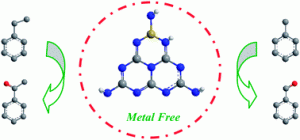I am delighted to announce that Cynthia Friend from Harvard University, has been appointed co-Editor-in-Chief of Catalysis Science & Technology.
Cynthia has been the Theodore William Richards Professor of Chemistry at Harvard University since 1998, and Professor of Materials Science since 2002. The recipient of numerous academic awards, including the Hanse-Wissenschaftskolleg Fellowship (2008) and the ACS George C. Olah Award in Hydrocarbon Chemistry (2009), Cynthia’s research interests include the development of mechanistic frameworks for selective catalytic syntheses using coinage metals and their alloys and the investigation of hybrid metal/metal oxide materials for chemical and photocatalysis.
Together with co-Editor-in-Chief Professor Piet van Leeuwen and the members of the Editorial Board, Cynthia will guide the development of Catalysis Science & Technology to ensure that the journal meets the needs of the different international catalysis research communities, and we are delighted to have her on board.
Article submissions to the journal opened October 2010, and expect to see the very first articles published Spring 2011. As with all RSC journals launched since 2008, the first two volumes of Catalysis Science & Technology will be freely available online.
You can register for free access to Catalysis Science & Technology articles now by filling in our simple online access form.
For information on how to submit an article to the journal or if you would like more information please contact us at catalysis-rsc@rsc.org.












